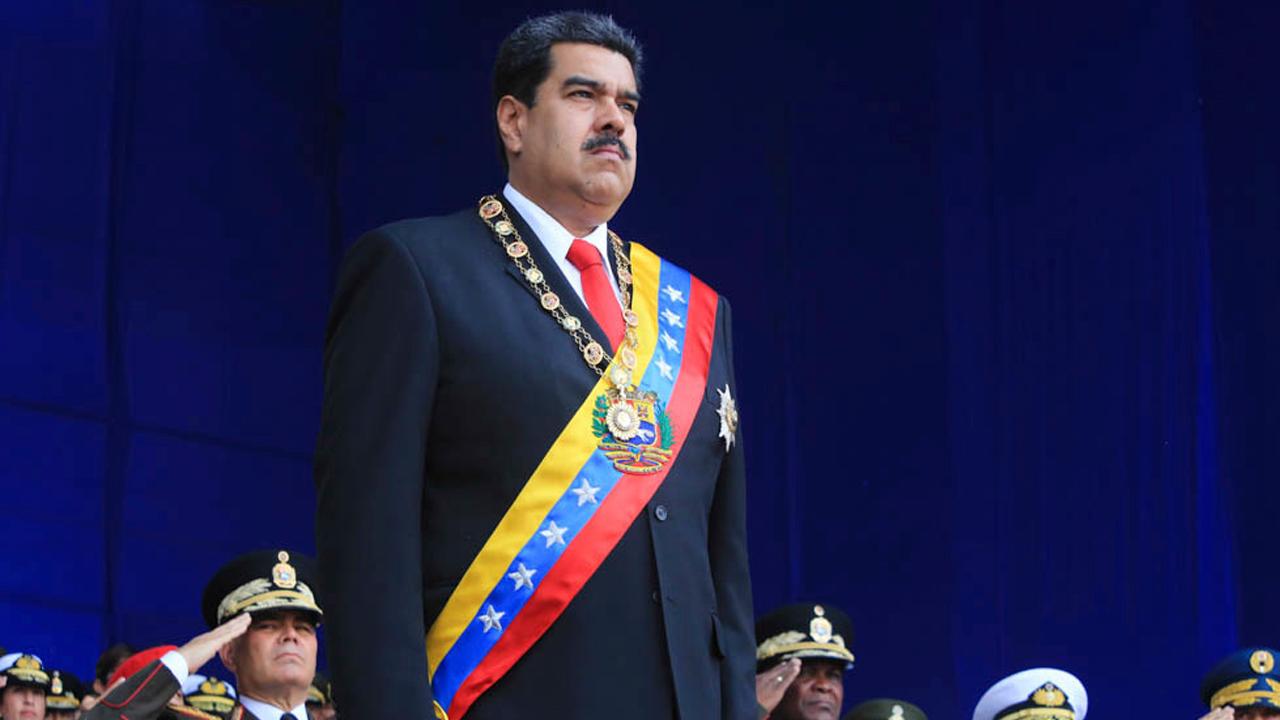FBI probes Mexican, European firms for trading gold, food for Venezuelan oil, sources say
2 Mexican companies have received 26 million barrels of oil so far from Venezuela in exchange for food and water
MEXICO CITY -- The FBI is probing several Mexican and European companies allegedly involved in trading Venezuelan oil as it gathers information for a U.S. Treasury Department inquiry into possible sanctions busting, according to four people familiar with the matter.
U.S. Secretary of State Mike Pompeo and special envoy for Venezuela Elliott Abrams told reporters late last month the State and Treasury departments were investigating whether several firms were violating sanctions imposed on Venezuela’s state oil company PDVSA since January 2019.
The sanctions are part of a campaign by Washington to strangle the revenues of President Nicolas Maduro, which has failed to break his grip on power. U.S. officials say privately that is a source of frustration for President Donald Trump, whose administration has tightened the implementation of sanctions in recent months.
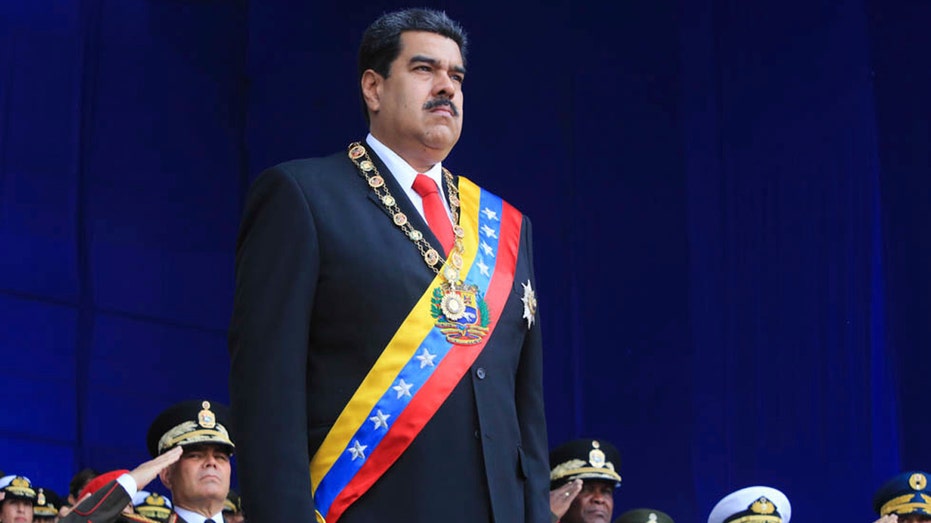
In this photo provided by the Miraflores Presidential Palace, President Nicolas Maduro stands at attention during a event marking the 81st anniversary of the National Guard, in Caracas, Venezuela, Saturday, August 4, 2019. (Miraflores Presidential Pa
Three of the people who provided information to the FBI - who asked for anonymity to discuss the matter - said the agency was investigating three Mexican companies: Libre Abordo, Schlager Business Group, and Grupo Jomadi Logistics & Cargo.
VENEZUELA, 'MADURO MAFIA'S' TOP OIL CUSTOMERS
Reuters could find no record of Venezuelan oil purchases by those companies prior to sanctions.
The people also said the FBI was gathering information on two Europe-based oil trading companies that do have a track record of dealing in Venezuelan oil or selling fuel to PDVSA: Elemento Ltd and Swissoil Trading SA.
One of the sources familiar with the matter in Washington said any action against the Mexican and European companies could be postponed or cancelled if the firms halted trade with Venezuela. The three others said the probe by the Treasury and the State departments could potentially lead to action in the coming weeks.
TRUMP TELLS CHEVRON TO 'WIND DOWN' OIL FIELDS IN VENEZUELA
A spokesman for the U.S. Department of Justice, which handles media enquiries for the FBI, declined to comment, as did a State Department spokesperson. The Treasury Department did not reply to a request for comment.
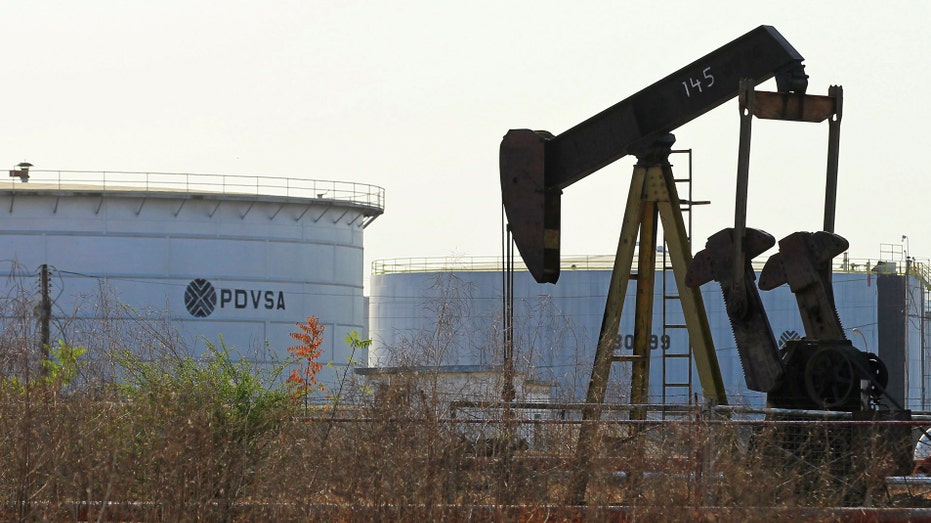
An oil pumpjack and a tank with the corporate logo of state oil company PDVSA are seen in an oil facility in Lagunillas, Venezuela January 29, 2019. REUTERS/Isaac Urrutia - RC1EA021E700
Emails and phone calls seeking comment from Elemento and Swissoil went unanswered, and a lawyer for Elemento did not respond to a request for comment. Emails sent to an address on Jomadi’s website bounced back.
Libre Abordo and its affiliate Schlager said in a statement to Reuters, citing legal experts they hired, that two contracts they signed in June 2019 with Venezuela’s Corporation for Foreign Trade (Corpovex) to provide food and water trucks in exchange for Venezuelan crude - known as an oil-for-food agreement - were permitted under the sanctions as long as no cash payment reached Maduro’s government.
OIL PRICES FALL 1% AS GLUT WEIGHS
“Neither Libre Abordo nor shipping companies hired to move PDVSA’s hydrocarbons are the subject of sanctions,” read the statement.
The firms declined to identify the legal experts but provided Reuters with their interpretation of Venezuela sanctions, which the companies said they sent to several shipping firms and other partners.
The undated memorandum said the oil-for-food deal did not contravene U.S. measures because Corpovex was not specifically named on the Treasury Department’s list of sanctioned people and entities, unlike PDVSA, and because there were exceptions under the sanctions for humanitarian goods.
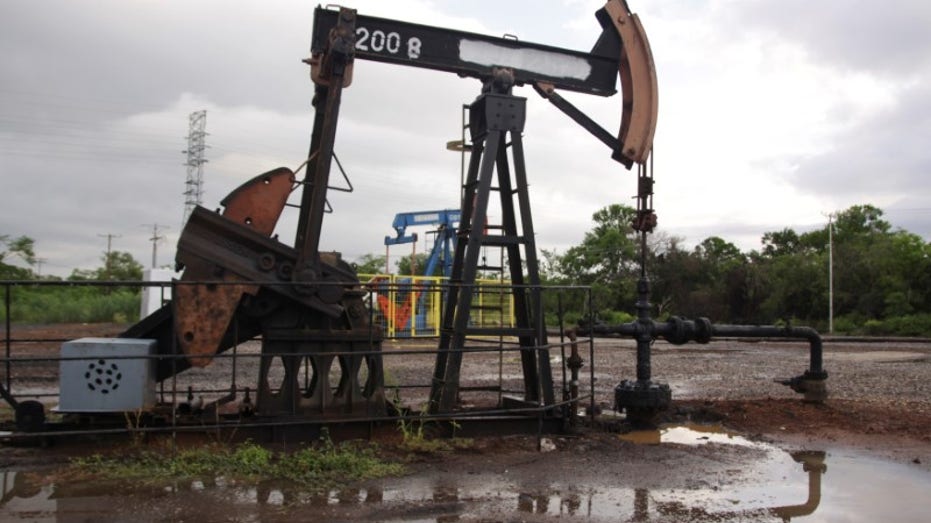
An oil pump is seen in Lagunillas, Venezuela, August 13, 2016. REUTERS/Jesus Contreras
Neither Corpovex, PDVSA nor Venezuela’s trade ministry responded to requests for comment.
VENEZUELA RELIANT ON SWAP DEALS
The two small Mexican companies have emerged as the largest middlemen for Venezuelan oil in recent months, according to internal PDVSA export documents, reviewed by Reuters.
OPEC member Venezuela has come to rely on trading oil and gold to pay for essential imports using complicated swap agreements because Washington’s sanctions bar Maduro’s government from using the U.S. financial system.
OIL PRICES TUMBLE EVEN AS STOCKPILES SHRINK FOR FIRST TIME IN 16 WEEKS
The PDVSA export documents show that Libre Abordo and Schlager have quickly ramped up trading of Venezuelan oil since receiving a first cargo in December, after a second wave of U.S. sanctions in August 2019 barred non-U.S. oil companies from doing business with PDVSA.
These secondary sanctions blocked the U.S. property of anyone worldwide “materially assisting” Venezuela’s government, including PDVSA and other governmental bodies - though it did not specifically name Corpovex. While the measures permitted shipments of food, clothing and medicines, none of the Venezuela-related executive orders issued by Trump specifically allowed oil-for-food agreements.
Whether that ambiguity potentially has created a loophole for companies is a matter of disagreement, some experts said.
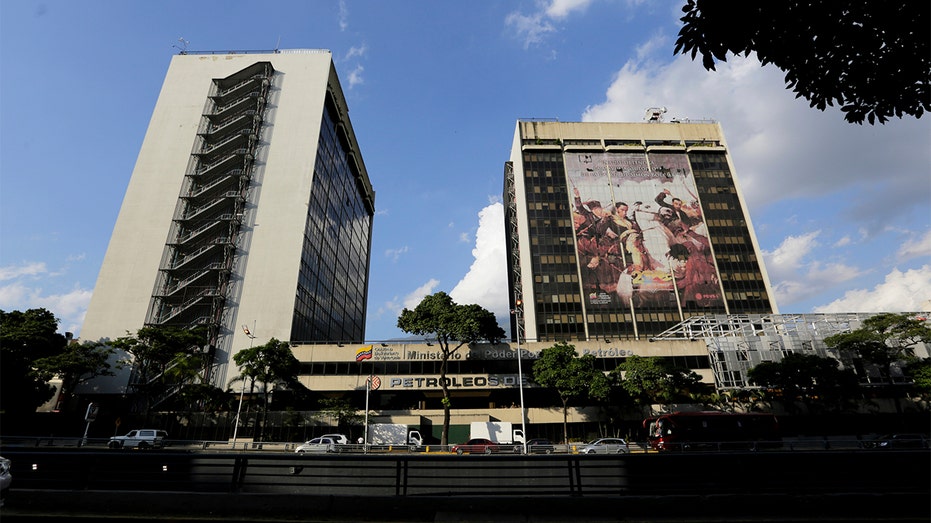
The headquarters of the state-owned oil company Petroleos de Venezuela, PDVSA, stands in Caracas, Venezuela, Monday, Jan. 28, 2019. (AP Photo/Fernando Llano)
Richard Nephew, a senior researcher at Columbia University’s Center on Global Energy Policy and a former State Department official dealing with sanctions policy toward Iran, said that while food deals were permitted under sanctions there was no special dispensation for them to be paid for in oil and the involvement of PDVSA could still prompt Treasury to take action.
However, Peter Harrell, an expert on sanctions at the Center for a New American Security (CNAS), said that in oil-for-food swaps the companies ultimately supplying the food could be protected from sanctions provided they had no role in physically receiving, transporting or selling the oil.
Harrell added that some U.S. policymakers might be reluctant to impose sanctions on companies involved in a deal to supply basic goods to a nation suffering a humanitarian crisis.
GET FOX BUSINESS ON THE GO BY CLICKING HERE
“Policymakers will be concerned that sanctioning an oil for food barter would play into a...narrative that U.S. sanctions are causing humanitarian challenges in Venezuela,” Harrell said.
DECISIONS ON SANCTIONS
While the FBI’s principal focus is on domestic intelligence and security, its agents also carry out overseas investigations to aid decisions on sanctions by the Treasury Department’s Office of Foreign Assets Control, which often also seeks input from the State and Commerce departments, U.S. embassies and the intelligence community.
Libre Abordo and Schlager’s oil-for-food deals with Venezuela obliged them to deliver 1,000 water trucks and 210,000 tonnes of corn to the country, the companies said. While some of the trucks have been delivered, the firms said they have not so far supplied any of the food as low oil prices have affected the original delivery schedule.
CLICK HERE TO READ MORE ON FOX BUSINESS
In exchange, they have so far received more than 26 million barrels of Venezuelan oil for resale, according to PDVSA’s export documents.
In just four months, Libre Abordo and Schlager increased their intake of PDVSA’s oil from less than 3% to 39% of the Venezuelan company’s total exports, which averaged 850,000 barrels per day in April.
The agreements threw a lifeline to Maduro, whose administration is struggling to afford imports of everything from food to medicine and industrial equipment.




















